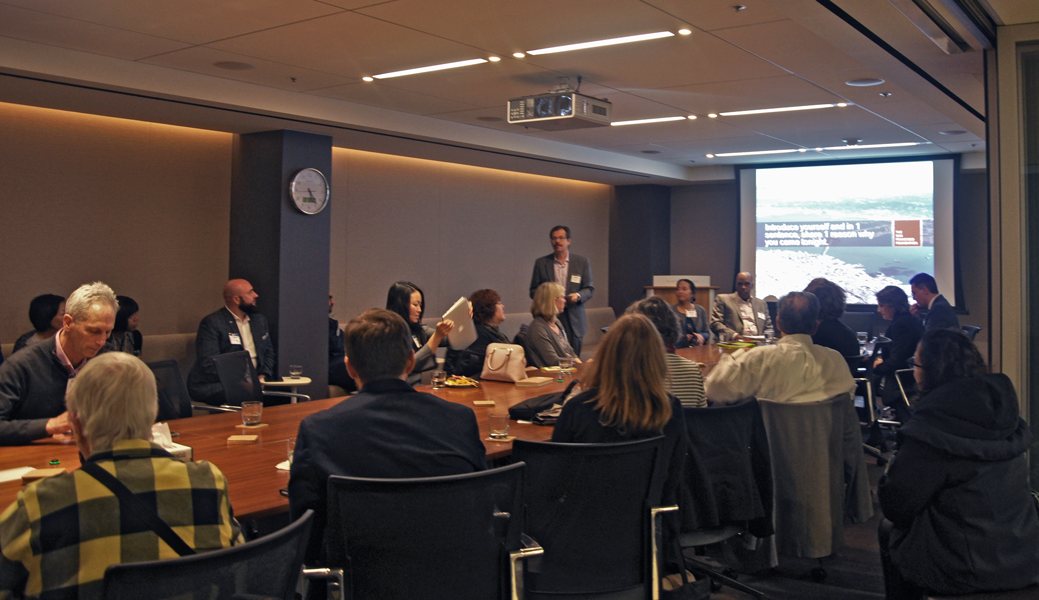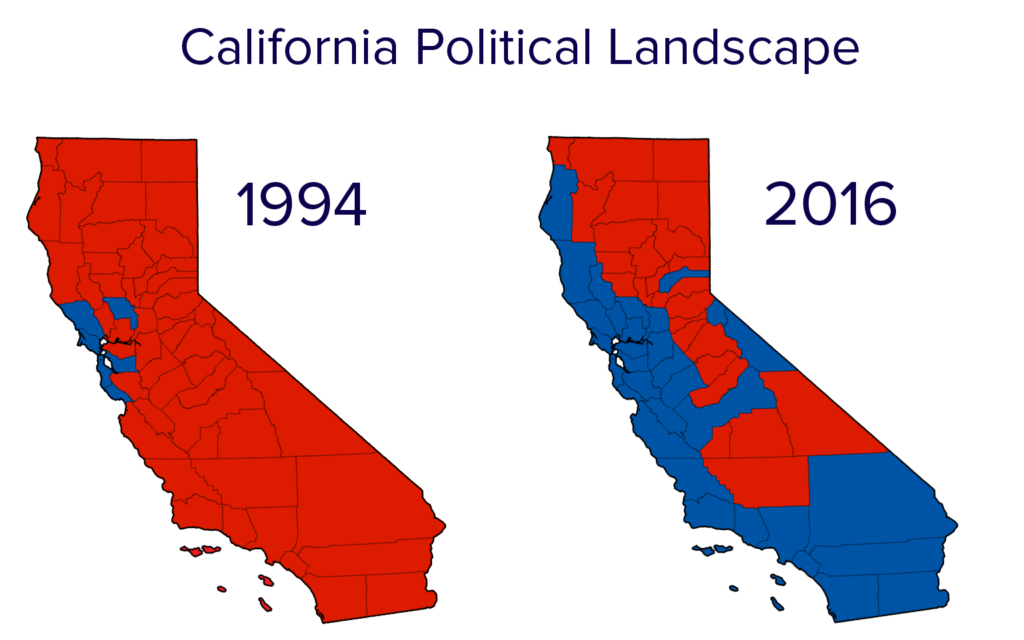On December 6th, The San Francisco Foundation hosted a Donor Peer Learning Session at our office titled “2016 Election: Where Do We Go From Here?” At the session, donors heard from multiple experts on the current state of affairs in California and the nation since the recent election and then got a chance to share their reflections and pose questions to the group. As one donor so eloquently put it, “I am ready to move from grief to action.” Multiple attendees spoke of their desire to protect the rights of immigrants, Muslims, journalists and other minority groups, and appreciated the value of sharing these goals with a community of donors in an open-minded space. These sentiments were echoed by many throughout the night. TSFF is committed to providing opportunities for learning and growing our donor community, and will continue to do so on February 1st at The Commonwealth Club. Throughout the evening, our donors maintained that even with all the uncertainty, hope and perseverance remain strong.
Judith Bell, TSFF’s Vice President of Programs, began with her own reflections on the election results, both at the state and national levels. Judith made an uplifting comment that while perhaps the outcome of the presidential election was a surprise to many, there was impressive progress made in the Bay Area. She spoke of the passing of multiple bonds targeting affordable housing in San Francisco and Alameda counties that will have an effect on many Bay Area residents’ housing access. She also shared that TSFF had been actively supporting nonprofits in the region to influence the passage of these positive measures. Judith then introduced The Rapid Response Fund for Movement Building, a new initiative that the foundation has created to help jumpstart local grassroots organizing quickly and directly. Judith’s comments instilled a sense of hope in the room before she proceeded to introduce our speakers for the night, Steve Phillips, Aparna Shah, and Abdi Soltani.
Steve Phillips, a foundation donor and author of Brown is the New White, spoke about the pioneering nature of California’s political history and analyzed significant outcomes from the recent election. He noted that the state continues to be a bastion of progressive values and organizing. Referencing the Civil Rights and Abolitionist movements, he commented that although organizing techniques such as knocking on doors are not new or particularly flashy, they still have a critical role in modern day progressive movements. In regards to the election, Steve isolated multiple broad outcomes that he found particularly key in explaining the election results: high rates of third party voting, an increase in Republican voter turnout, and an overall uptick in the presence of misogynistic and xenophobic rhetoric from some members of the right. He worked through these trends in an effort to shed further light on the presidential election. In closing, Steve expressed hope that the rest of the nation would continue to move forward alongside California, toward a future that is more inclusive and diverse. When voicing this hope, he cited the increasing voting power of people of color in California and the nation at large.
Next, our donors heard from Aparna Shah, the executive director of Mobilize the Immigrant Vote. Aparna spoke about how far the state has come in the last 20 plus years, from voting to deny undocumented children the right to public education in decades past, to passing a suite of progressive reforms in California. She stated that progress like this was no accident or coincidence, but the result of a concerted effort from both socially conscious philanthropists and organizers on the ground. The tactics of organizers have evolved with the changing times. Aparna shared some strategies that Mobilize the Immigrant Vote employed during election season, including using cell phone technology to text 90,000 people to remind them to vote and give them details of their polling location. Aparna even had her nine-year-old son participate by sending out texts to potential immigrant voters. She also noted that a major strategy of MIV is leadership development, in the hopes that today’s young millennial volunteers will be leading the movement in the future.
Abdi Soltani, the executive director of the ACLU of Northern California, was the final speaker of the evening. Abdi presented a thorough examination of Donald Trump’s suggested policies from a legal standpoint, and noted where the ACLU is taking a stand on the numerous issues they are anticipating will arise during the incoming administration. The ACLU is gearing up for major battles related to reproductive rights and women’s access to sexual health services. LGBTQ rights are another area where the ACLU is already hitting the ground running on legal defense. Abdi also mentioned the realm of digital security and privacy, and the important role that technology companies can play in the dialogue around digital rights. Finally, Abdi mentioned that voting rights are an essential battleground and will be a major component of the ACLU’s focus on where to invest and grow in the years to come. Abdi concluded by encouraging Bay Area residents to think outside of the Bay Area to the Central Valley and Inland Empire as key sites for the work that needs to be done in California.
The evening concluded with a Q&A discussion between the speakers and donors, where feedback and reflections were communicated. Many shared comments that spoke of uncertainty but hope. Some voiced concern for the future of truth and integrity in independent journalism, and expressed interest in exploring solutions to these issues. There was a consensus that while much work is still to be done, positive and progressive change is possible. One donor spoke of “maximizing the resistance,” while another touched on the “collaboration efforts” that were already emerging between nonprofit organizations, donors and The San Francisco Foundation. Donors expressed that they were pleased to be part of a community of socially conscious philanthropists working to shape the Bay Area and beyond into a world where people of all backgrounds can thrive. A sense of hope was present throughout the event, and our donors left with a renewed sense of determination and community.
To continue the conversation, The San Francisco Foundation will be hosting an event at The Commonwealth Club on February 1st, titled Changemakers: Movement Leaders on Civil Rights in an Uncivil Time, as part of TSFF’s People, Place, Power speaker series. TSFF has also created a list of vetted giving recommendations featuring nonprofits doing critical work in the Bay Area.



